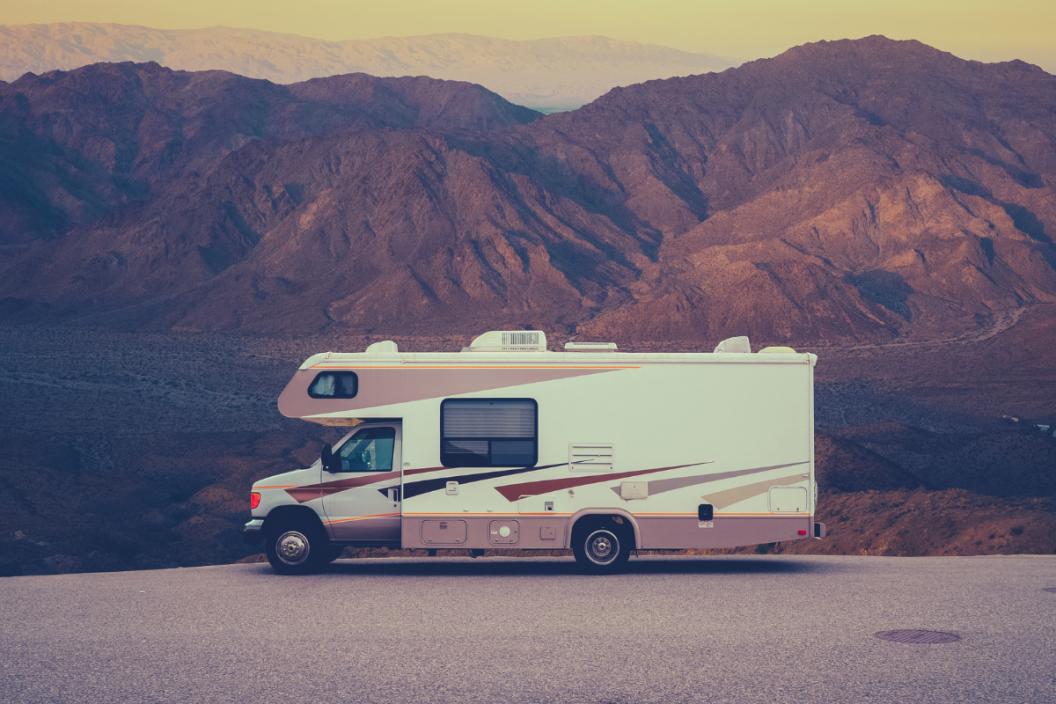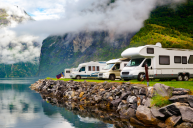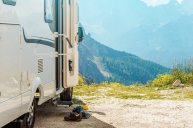Recreational vehicle sales are soaring, and the RV industry expects 2021 to be a record-breaking year. Dealerships say much of the demand is coming from first-time buyers and others anxious to find a safer way to vacation during the pandemic.
As any RV owner will tell you, though, buying a motorhome, camper or trailer is a complex process that requires a ton of decisions. The more choices you make, the more opportunities you have to make mistakes, especially when you're a novice.
We had some great family camping experiences in the motorhome we owned from 2011 to 2017, and we learned a lot. If you're considering your first RV, these are some of the errors to avoid.
MISTAKE NO. 1: ASSUMING YOU'LL SAVE A LOT OF MONEY ON TRAVEL
https://www.instagram.com/p/CHRS2Y6htuB/
If you want to make a motorhome owner laugh, say something silly like, "I bet you save a ton of money on hotels!"
Well, maybe. But new motorhomes typically cost $60,000 to $500,000, according to the RV Industry Association. Add in the cost of gas for a vehicle that gets 6 to 10 mpg, plus insurance, maintenance and the inevitable repairs. Campground fees typically run $25 to $80 a night. You may need to pay for storage if you can't park the rig at your house, since many cities limit the time that RVs can be parked on the street. Storage can cost $30 to $450 a month, depending on whether it's outdoors or indoors, heated or unheated, near a major city or out in the boonies. (We paid $125 a month to store ours outdoors near a favorite campground about 90 minutes from our Los Angeles home.)
Campers and trailers can be more economical — as long as you already own the truck or SUV you need to haul them. Pop-up trailers and truck campers start at around $6,000, according to the RVIA. Travel trailers usually range from $6,000 to $55,000, while fifth-wheel trailers range from $18,000 to $160,000.
If you need a loan, you may wind up paying a lot of interest over time because RV loans often stretch for 10, 15 or even 20 years. Borrowing $40,000 for 15 years will cost you nearly $19,000 in interest, even at a reasonable rate (for RV loans) of 5.5%.
Add it all up, you could spend a lot of time in some pretty nice hotels for what you'll pay camping in an RV.
There are definitely ways to spend less. If you're shelling out for a new rig, though, don't kid yourself that you're vacationing on the cheap.
MISTAKE NO. 2: BUYING NEW
As with cars, RVs lose a considerable amount of value the second they're driven off the dealership lot. Letting the first owner take that big depreciation hit can save you a lot of money.
For example, RV Trader — one of the biggest RV marketplaces — recently advertised a 2021 Winnebago Navion 24D for sale in California with a list price close to $160,000. The 2019 version, with just 5,200 miles, was listed for $120,000.
We spent a lot less, about $16,000, buying a 13-year-old motorhome with less than 8,000 miles on the odometer. We spent $7,000 on maintenance and repairs over six years, plus $1,200 to replace its six tires.
You may worry that a used RV will be a money pit, and that could be true. But unlike cars, RVs often aren't trouble-free even when they're new. There may be leaks, rattles and manufacturing defects. The first owner may spot and fix the worst problems before passing the RV on to you. (You'll still want a seasoned mechanic at a good dealership to inspect any used rig before buying.)
This leads me to another tip: Spend some time researching dealerships and their service departments, because some are notorious for treating customers badly and overcharging on repairs. Check out online reviews and talk to experienced RV owners.
MISTAKE NO. 3: RUSHING YOUR PURCHASE
Making a big purchase in haste is rarely a good idea, but you could really regret joining the stampede to buy an RV right now.
Normally, you can negotiate a discount of 20% or more off a new RV's sticker price. But the pandemic slowed production at factories just as demand surged over travel safety concerns. The result is a seller's market with limited inventories at dealerships. That means a lot less wiggle room on prices for new and used rigs. A year or two of high demand is often followed by a lull, though, so consider renting an RV now and buying after things calm down.
Renting first is a good idea in any case, because it gives you a chance to try different types of RVs and to see if this kind of camping is for you. (We ultimately decided we preferred national park lodges and nice hotels.) Sites including Outdoorsy, RVShare.com and Cruise America offer a wide variety of rental options, with motorhome prices typically starting around $100 a night.
___________________________________
This column was provided to The Associated Press by the personal finance website NerdWallet. Liz Weston is a columnist at NerdWallet, a certified financial planner and author of "Your Credit Score." Email: [email protected]. Twitter: @lizweston.




